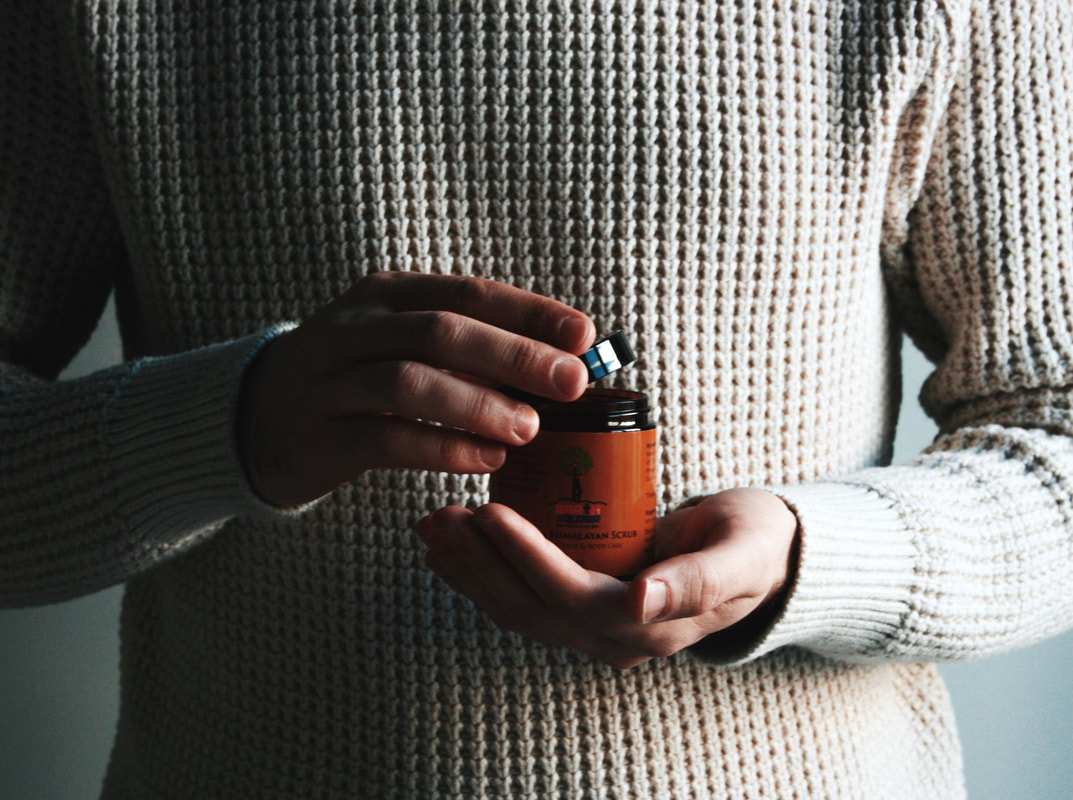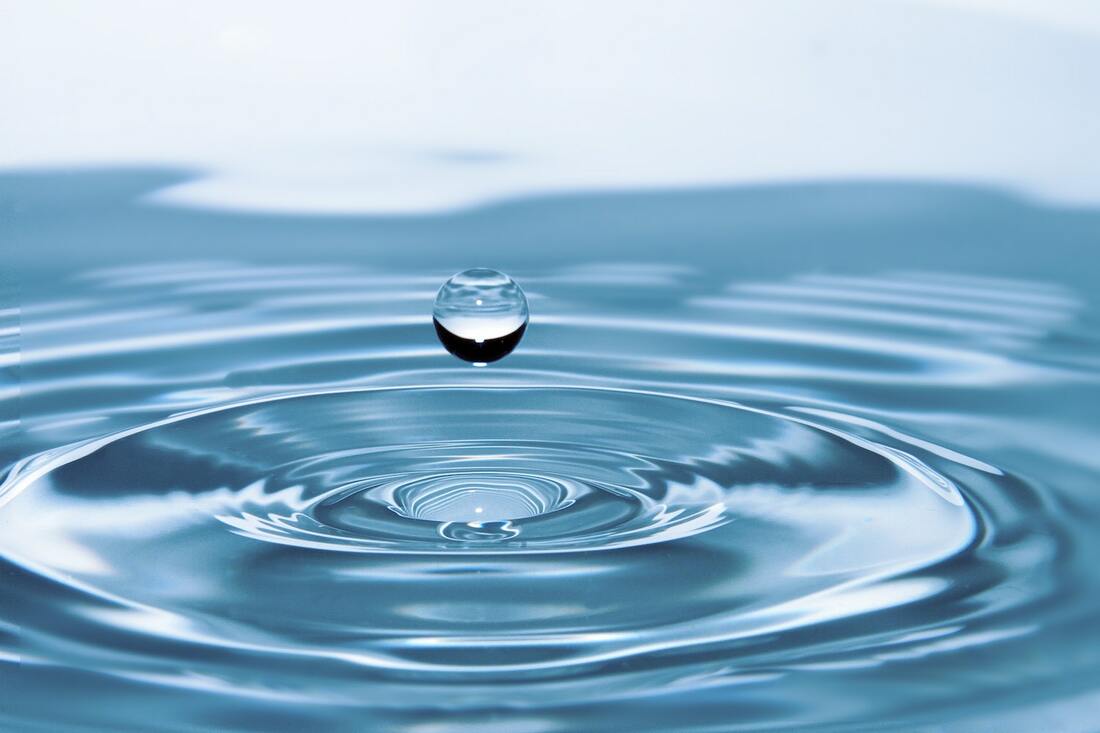|
Written by Tamryn Burgess Ever noticed how dry and dull your skin looks the night after a few too many drinks? Or found yourself struggling with breakouts after bingeing on a little too much sugar? You aren’t imagining it! Absolutely every single thing you choose to put into your body on a daily basis has an impact on your health and the state of your skin. In fact, the appearance of your skin is a great indicator of what’s happening within. Usually, a glowing radiant complexion reflects a healthy internal environment, whereas constant skin issues and flare-ups may be a sign of internal inflammation and an anti-inflammatory diet may be in order. Don’t panic! Managing skin issues is easier than you think, and by making the switch to a cleaner diet, you’ll also boost your health and welcome an abundance of energy into your life! Many people rely solely on skincare to do the work, but if you aren’t taking care of yourself both internally and externally, then no skincare products are going to provide the results you are after, no matter how excellent they are. Healthy skin comes down to a variety of factors, but paying attention to what you eat is the very first step. In this article, we’ll address some of the most common skin issues, foods that contribute or aggravate the problem, as well as provide natural, healthy options so you can feel good within yourself again! DRY AND AGING SKIN Dry skin can be a real pain, there’s no other way of putting it, and if you struggle with dry, flaking skin then you know what we mean! Dry skin can appear dull due to a build-up of dead skin cells and a loss of moisture through the pores. Exfoliation can help to slough away old skin and provide some temporary relief, but ultimately you’re going to want to focus on finding ways to increase moisture levels in your skin and prevent water loss through the pores. Foods that contribute to dry skin All processed, unhealthy foods will keep the skin dry and dull, but two of the biggest culprits are sugar and alcohol. Sugar saps moisture from the skin cells and even breaks down collagen, a structural protein essential for keeping the skin taut and plump (1). Think of collagen as the “glue” that connects the skin cells and gives them structure. If this “glue” breaks down you’ll have bigger issues than just dry skin, you’ll deal with sagging skin too, that is at a higher risk for the signs of aging like lines and wrinkles. Alcohol is incredibly drying and puts your body, as well as your skin at risk for dehydration. Alcohol causes widespread inflammation in the body and if you indulge too often, you’ll start to notice enlarged pores, discoloration, lines and wrinkles, and an overall dull appearance (2). Healthy tips for dry skin It’s unrealistic to say you’ll never have a sugar cupcake again or that you’ll abstain completely from alcohol if you usually enjoy a glass or two of the good stuff. We believe that everything should always be in moderation and to make healthy changes where you can. For example, try natural sugar alternatives that are more easily accepted by the body, such as pure maple syrup or honey, both of which do have a high sugar content, but aren’t as processed and also contain a heap of vitamins and minerals. Coconut sugar, monk fruit, and stevia are a few more sugar alternatives you may want to look into. You should still monitor your intake of natural sugars, but at least you know they’re a heck of a lot healthier than that processed white stuff! A great tip when drinking is to drink one glass of water alongside every drink you have (try and keep it to two, three max). This will help to counteract some of the negative effects and you’ll thank us when you wake up without a nasty hangover the next day! OILY AND INFLAMED SKIN Oily skin is when your skin is unbalanced and over-produces sebum. Sebum is your skin’s natural oil and when it’s balanced your skin is healthy and clear with a dewy glow. When too much sebum is produced, it may clog your pores and result in unwanted blemishes that may range from a few mild pimples to more severe acne breakouts. Foods that contribute to oily skin Once again, sugar tops the list, along with dairy. Sugar causes inflammation in the body. Not only does increased inflammation raise your risk of developing disease, but it also manifests externally as skin inflammation, which then results in those large inflammatory pimples that you try so desperately to hide away. Sugar also increases sebum, which alone can cause pimples, but if you’re already struggling with your skin it will only make it worse. Dairy is packed in hormones that can affect your own hormones, resulting in hormonal disruptions. Whenever there is any sort of hormonal imbalance in the body, you may notice breakouts along the jawline and chin and on the cheeks. Dairy also contributes to internal inflammation, which you now know is no good when it comes to your health or your skin (3). Healthy tips for oily/inflamed skin Cut out the processed sugar and try some of the healthier alternatives we mentioned above, you’ll never know the difference! Switch out dairy for plant-based milk instead, you’ll be surprised at just how delicious it is! We especially love organic almond and cashew milk, coconut milk and hazelnut! They’re super creamy and loaded in healthy fats, which help to reduce inflammation and balance the skin. If you must include dairy opt for grass-fed and organic which is higher in omega-3 fatty acids without added hormones or antibiotics. Also, increase your intake of zinc, a mineral that is excellent for clear, healthy skin. Zinc-rich foods include pumpkin seeds (try them roasted!) eggs, legumes and nuts. If you switch out processed foods for natural, healthier alternatives and fill your belly with a rainbow of fruits and veggies, along with loads of leafy greens then you’re going to see some remarkable changes taking place in your life. Not only are you going to feel like a whole new person, but your skin is also going to glow with health and everyone is going to want to know your secret! Skin loving foods, along with a healthy skin care ritual, using products straight from nature, will work together to provide you with the best skin care ritual of your life! Wait to see the results for yourself if you don’t believe us... SOURCES
0 Comments
Written by Tamryn Burgess Look at the ingredient list of most of your skincare and body care products and somewhere within the first few lines, you’ll see water or “aqua” listed; often right at the front. Trusting the brand has your best interest at hand, this may not have even been something you gave a second thought to. If water is listed, it must be there for a reason, right? In this article, we’ll explore why that may not always be the case, and how you can avoid purchasing products that aren’t properly formulated with your skincare needs in mind. WHY DO BRANDS USE WATER IN THEIR FORMULATIONS? Products like facial toners, shower gels, and moisturizers (to name just a few), contain upwards of 50% water in the formulation; some cases more than 80% water! This may seem like a tough pill to swallow, especially if you’re paying exuberant amounts for what could be a bottle of mostly water. There are certain reasons why skin and body care products do require water, however, and they include:
WHAT ARE THE CONS OF WATER IN SKINCARE FORMULATIONS? Unfortunately, in many cases, skincare brands use water in their products not for any reason mentioned above, but for reasons that may actually hurt not only your wallet but the health of your skin as well. Cheap filler ingredient In order to increase the amount of liquid in the bottle, not to mention their bottom line, certain brands add water for no real reason that benefits your skin. Even very expensive products contain an unnecessarily large amount of water! If you want to know exactly the percentage of water in the products you use, you should always feel comfortable reaching out directly to whatever brand you purchase your skincare from. If they’ve got nothing to hide, they should be forthcoming about it with you. Ingredients become less effective While some botanical extracts (like plant enzymes) do require water, other ingredients like skin nourishing oils do not. In fact, oils that are not diluted by water are able to deliver moisture straight to the skin’s cells, with their powerful actives. Even so, sometimes water is added to oil-based products (as a filler ingredient), in which case an emulsifier must be added as well. A very common emulsifier is sodium lauryl sulfate, which irritates the skin and poses major health risks at a concentration of 2% or more (1). May encourage bacterial growth When water is used in a skincare product, brands technically do not have to divulge the source of the water being used. This may mean that anything from simple tap water (which contains fluoride and chlorine) to distilled and alkaline water is used. Certain water sources contain microbes and fungi which overtime could breed bacteria in the product and affect your skin negatively. Something to keep in mind especially when making DIY skin care at home. Puts your health at risk Skin and body care products that contain water, also require the use of preservatives. Not all preservatives are created the same, but for the most part, harmful preservatives like parabens, triclosan, BHA & BHT, and sodium lauryl sulfate are used. These preservatives are absorbed by the skin and may cause anything from hormonal, nervous system, and endocrine disruptions, to increasing the risk of certain cancers and affecting fertility (2). May aggravate already dry skin This may seem like an odd point but have you ever come out of the shower, and a few minutes later your skin starts to feel tight? This is because water is actually drying for your skin, and not to mention… a big reason why you should never over-cleanse. When you wash your face too regularly, the water may actually strip your skin from its natural oils, which only leads to drying or aggravating already dry skin. So despite what conventional wisdom may tell you, using more water on your face isn’t the answer. Instead, use a moisturizing and restorative scrub that uses natural exfoliants for nourished skin. Only a temporary hydrating solution It’s true, there’s no way to combat that water is hydrating for the skin. But as you now know, the effects of water on your skin is short-lived. Only when a moisture locking ingredient or emollients is in the formulation, is it worth it. There is a downside to these emollients, however. Since they keep moisture locked in, a layer is formed on top of the skin, which also prevents the skin from breathing. Your skin’s natural microbiome needs to be treated to ingredients that balance it naturally, without disrupting its functions. SOURCES |
Details
|


